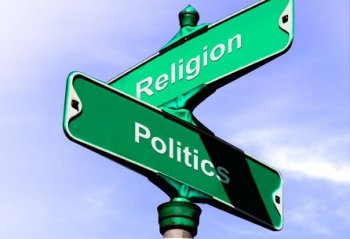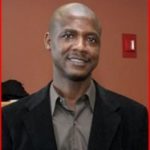
Social media space in the Gambia has become so ethnically and politically toxic mix of religion and politics that it is sometimes sickening. Ignorance parading as wisdom is on steroids. Everyone is an authority on what he or she knows NOTHING about. Even mainstream media isn’t any different. Gone are the days of intellectually engaging investigative stories, analytical essays with an amount of intellectual arguments that, laced with incontrovertible facts, get you riveted to the plot as it approaches a denouement. We need our sanity.
In the trouble-torn world today, inter-faith understanding is of utmost importance to the betterment of our diverse and pluralistic society because there can’t be peace in the world without peace among followers of religions. You may follow one religion, but you should respect all. The Holy Quran laid the foundation of inter-faith understanding. There are several examples from the life of Prophet Muhammad (PBUH) for useful dialogues and interactions along inter-faith dialogue.
There can’t be peace among communities without respect for each other. There is need for fostering a culture of respect, understanding and tolerance among followers of different faiths and taking practical steps towards diversity and tolerance.
Always putting on religious, partisan and tribal blinders, several ignorant yet pompous postulators, even in the press and social media, suddenly went gaga creating the notion of religious dogma and scientific ignorance as well as to decry prejudice and ridicule that Gambians no longer need multicultural and pluralistic ethos because of rabid hatred of progressivism to a degree where we believe no one is capable of NO GOOD. Disbelief, and annoyance. It is for the sake of those who may have been misguided and misinformed of ‘secularism’ that I propose ‘Civilizational Dialogue’ to start Intra-Faith Dialogue.
The Gambia is a great country with different faiths, with a rich history of religious tolerance and diversity encompassed great religious and political as well as traditional leaders for centuries who preached the gospel of inter-religious understanding and pluralism. The Gambia civil society organization must begin a new initiative, organise a symposium of ‘Civilizational Dialogue’ to start intra-faith dialogue that will strive for developing an eco-system where followers of different faiths can talk about similarities and bear with the differences.
The belief system of “Secularism” has never been legally incorporated as a cardinal principle in any of the Gambia’s Constitution BUT is defined by a general commitment to a frayed pillar of the Gambia’s pluralistic and multicultural ethos.
Constitutional and religious scholars should strive for a symposium on National Integration by bringing religious communities closer, to collaborate with civil society organizations working for interfaith dialogue and understanding on national and international levels. This Inter-Faith symposium should aimed to initiate peace-building efforts among the followers of different faiths, to promote awareness for Inter-Faith harmony especially in the sensitive areas like secularism, to start research in the field of comparative beliefs and Inter-Faith understanding specially cordial Christian-Muslim relations, conducting researches on the causes of religious discord.
The dialogue will foster the ways of enhancing religious understanding in our country’s maturing democracy, to promote and undertake research and publications about the ideas of scholars towards the promotion of Interfaith understanding and to create a platform for scholars of various religious faiths to come together for useful dialogues and interactions.
Question for constitutionalists and religious scholars, what is the role of the state towards obnoxious religious behaviour in either a religious though secular state or a secular though religious state? Far removed from my argument — that ‘secularism’ is a misnomer in the Gambian context of profuse religiosity, and what we should be talking about? ‘Pluralism OR’. What is happening in the Gambia regarding State and religion should elicit some reflections from constitutionalists and scholars.
At the one remove, religious fractions are an influential socio-political fact and if they supersede the permissible exercise of their freedom, they can create conditions that could precipitate constitutional instability. This is because it is not easy to return and pin large social fractions to constitutional edicts.
At the other remove, a facially justified attempt at intruding on the permissible exercise of the freedom of worship could invoke disobedience on the part of religious fractions to the legal and political order. This also precipitates constitutional instability.
Eminent social scientist TN Madan has argued that the increasing secularisation of modern societies is responsible for the rise of fundamentalism, since “it is the marginalisation of faith, which is what secularism is, that permits the perversion of religion”. There are no fundamentalists or revivalists in civilised society. The implication is that secularism may or may not deprived people of their moral underpinnings — the meaning that faith gives to life — and religious extremism has risen as an almost inevitable antithesis to the secular project in other societies.
The only way out of this dilemma is for religion to return to the tolerant, holistic, just, pluralist society articulated so effectively by the teachings of the holy scriptures, which embraces both worldly and spiritual duty.
After all, as one scholar points out, the Islam’s secular pursuit of material happiness is not meant to be divorced from his obedience to the ethical and religious tenets of his faith.
So, the distinction between ‘religious’ and ‘secular’ is an artificial one: there is no such compartmentalisation between state and religion. When you conduct your life by performing your duties ethically, are you ‘secular’ or a ‘good’ Christian or Muslim or atheist.
The propose symposium initiative, which may comprise a joint interfaith dialogue of Constitutional and religious leaders from the three Abrahamic faiths – Islam, (Judaism is less prevalent in the Gambia) and Christianity – will involve senior Muslim leaders, including potentially Islamic scholars and theologians an unprecedented interfaith dialogue to resolve the concept of secularism and democracy as well as embracing freedom of speech and expression with all parties, including those opposed to religious communities.
By Alagi Yorro Jallow











Recent Comments